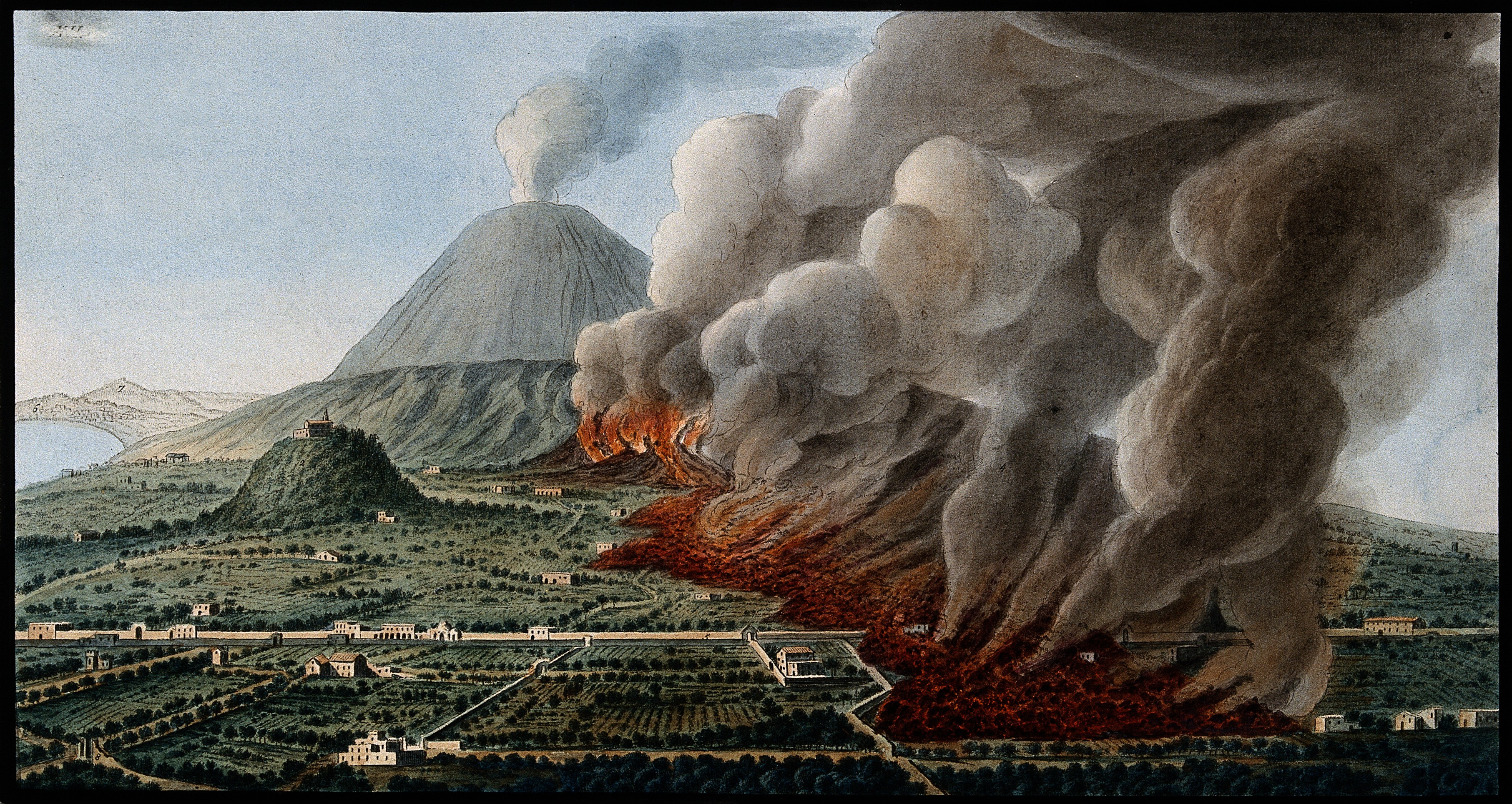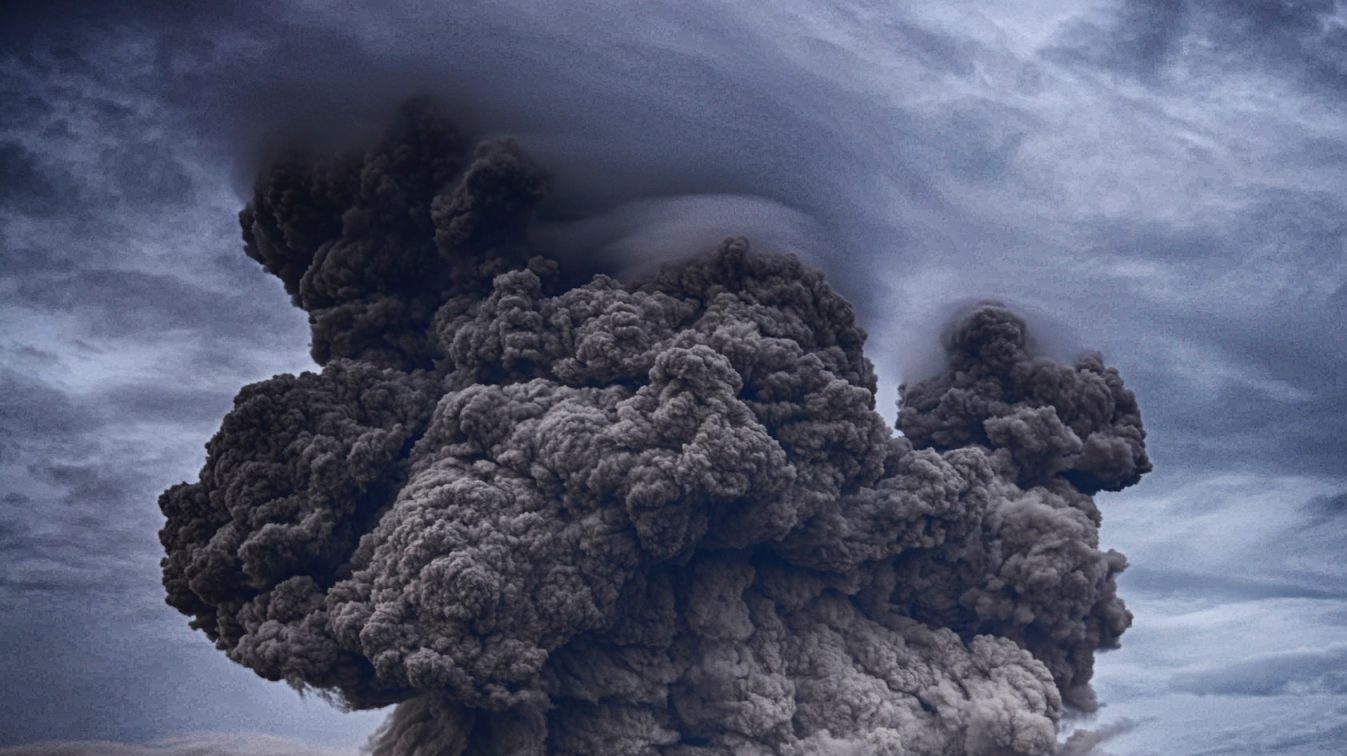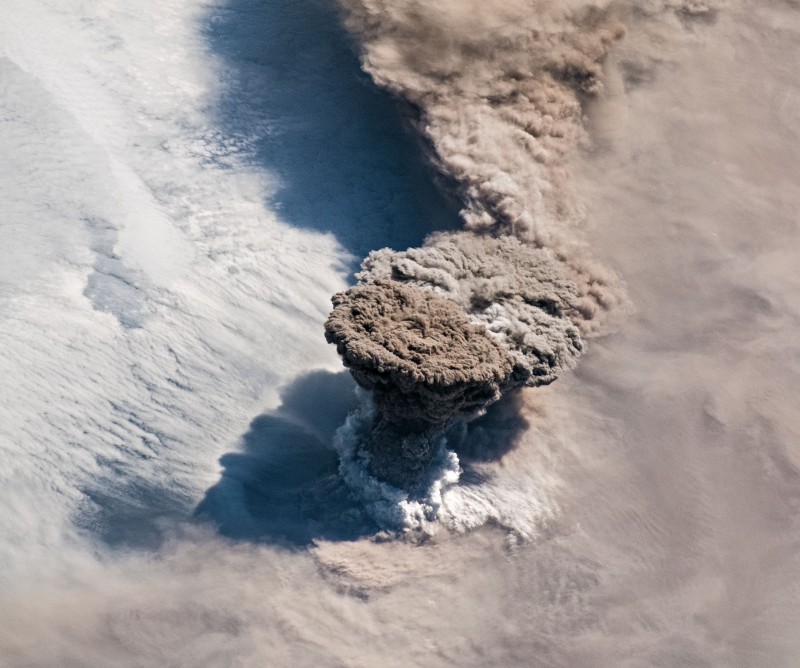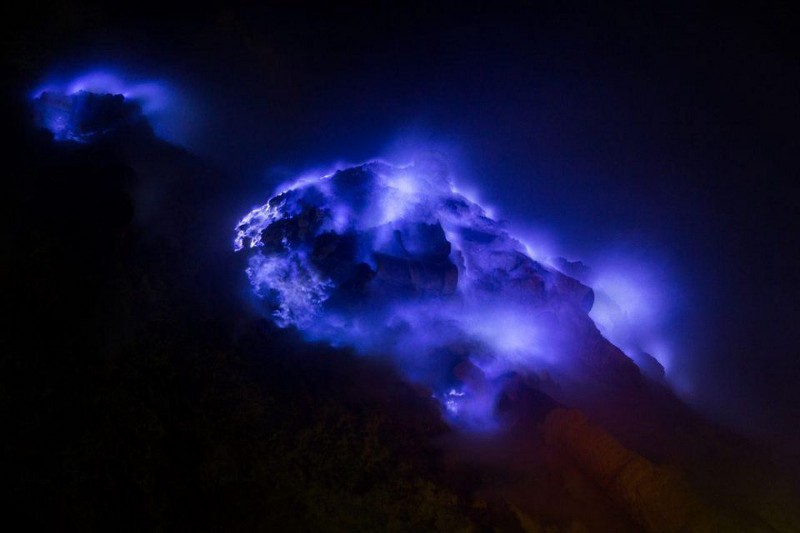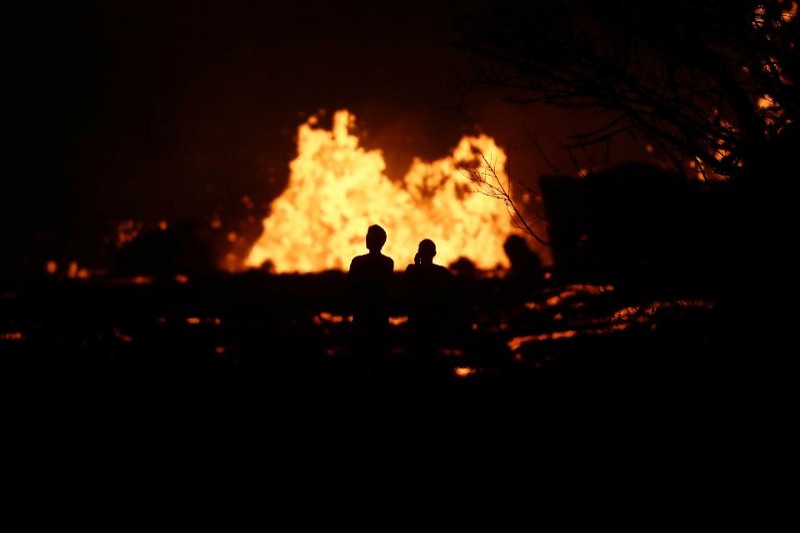Renewed activity prompts evacuations around Anak Krakatau

I have made it back to Ohio from Minnesota today – no small feat considering all the snow across the middle part of the continent. Amazing how a little phase change can cause such a ruckus.
I was greeted with new news from Indonesia when I got back to Granville. Anak Krakatau, the volcano that has risen in the location of the collapsed Krakatau in the Sunda Strait (see below), has become active enough for Indonesian officials to begin considering evacuations in the surrounding region. Very few people live on the island that is the home of Anak Krakatau, but as the devastation on both sides of the strait during the 1883 eruption of Krakatau show, you don’t need to be at the volcano to become a victim of its eruption. During the 1883 eruption, the eruption and collapse of the volcano produced a large tsunami that killed thousands on the shorelines of Java and Sumatra. Although it is highly unlikely that the current activity at Anak Krakatau will lead to an eruption as dramatic at the 1883 events, it is still important to watch the volcano closely.

Currently, it is the constant ash emissions from the volcano producing a plume ~600 meters / 1000 feet tall that has caused the greatest concern. Parts of Banten and South Lampung provinces have be receiving significant ash over the past week. Monitoring the volcano has been hindered by the equipment being covered by ash during this new phase of activity – however, the equipment seems to work after each rainfall, backing up the idea that ash is the problem. Visual observations have been possible but again, they are hampered by weather conditions. Right now, government officials plan to evacuate upwards of 40,000 people from over 30 villages that could be affected if a tsunami is generated by the current eruptions. The potential volcanic tsunami would likely be caused by pyroclastic flows entering the sea rather than a new collapse, but is dangerous in either case. Considering the real human dangers, I find it odd that the some in the media are playing up the danger Anak Krakatau poses to coffee plantations, but I suppose that is the easiest “angle” the writers could produce.
I will keep my eyes peeled for more information on this heightened activity at Anak Krakatau. Right now, the volcano is at Alert Status 2 (of 4) according to the PVMBG.
Top left: Undated image of an ash plume at Anak Krakatau with lightning forming within the plume.
